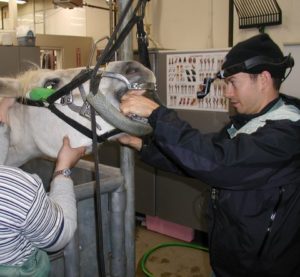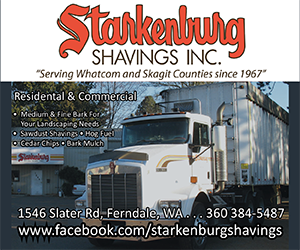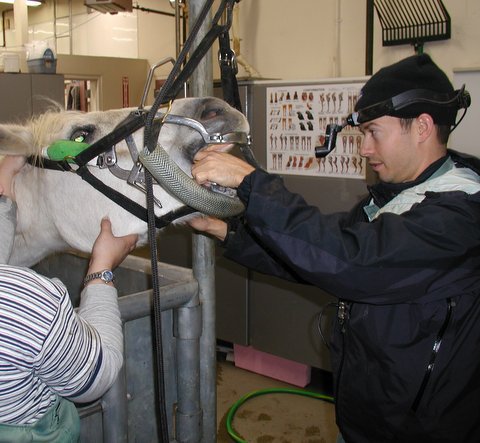What You Need to Know About Non-Veterinary Equine Dentists
by R. Paul Schwab, DVM

Equine dentistry has evolved tremendously over the last 20 years. Gone are the days of blindly rasping sharp teeth smooth that you may, or may not, be able to reach. The tools that are produced today make the procedure safer and easier, the horse has less secondary damage and the veterinarian is less damaged as well.
Horse owners have realized the improvements in performance and health that come with proper, regular, and safe dentistry. In a larger percentage of the horse population we are slowly transitioning to annual, or at least every two to three year, dental exams and are able to keep these horses living longer and (hopefully) retaining their teeth.
Equine veterinarians have enjoyed this increase in dental work because not only is it good for business, but also it gives us a chance to see horses on a wellness basis. Dental work is only a small piece of the horse’s health. Before we even start on a dental exam, we look over the entire horse, discuss ongoing issues or new ones, and hopefully pick up on any problems the owner may not be noticing. It’s also a perfect opportunity to discuss nutrition, especially after looking at the mouth and seeing what teeth are still capable of chewing.
There has also been an increase in non-veterinary equine teeth floaters (some use the term “lay dentists”). There are several facilities around the country that teach equine dentistry to non-veterinarians. Some of these programs are very good and produce some excellent equine dental specialists. It’s an exciting field to study and it’s great to see the improvements you can make in a horse’s life.
Here’s the dilemma. Depending on the state, it’s probably illegal for non-veterinarians to practice dentistry on horses without veterinary supervision, and certainly most states do not allow for non-veterinarians to administer sedatives without a veterinarian present. In Washington State, non-veterinarians working on teeth need to be licensed veterinary technicians working under the supervision of a veterinarian. Unfortunately, this hasn’t stopped many people from traveling from state to state, performing dentistry on horses with and without sedatives and without veterinary supervision.
In many cases a “licensed equine veterinary dental technician” can be an excellent member of a team of people that care for the horse or barn of horses. Some veterinarians either don’t have the interest or extra training it takes to provide adequate dental services, or in many cases the physical capacity (dental work can be tough on the body over time, believe me). There are parts of the country that have limited veterinary coverage as well. A veterinarian should be available for sedation in any of these situations in any state. Yes one can work on a horse’s teeth without sedation, but cannot perform a complete examination of the back of the mouth safely and effectively without some sedation and a good mouth speculum. This is safety for the dentist, handler and horse. What some people forget is that when a horse moves around a lot during procedures the instruments can damage the inside of the mouth. Additionally, certain procedures require local anesthesia to decrease pain for the animal as well as antibiotics to treat infections or prevent infections afterwards. Radiography has become an integral part of the equine dental examination, especially with the addition of digital radiography. These all require a supervising veterinarian present.
The AVMA has a list of states and their laws regarding lay dentistry (https://www.avma.org/Advocacy/StateAndLocal/Pages/sr-dental-procedures.aspx). If you are considering using a non-veterinarian for dental services or your stable is using a lay person for teeth floating, find out their credentials. Are they a licensed veterinary technician? Do they have liability insurance? Where did they train? Are they working with a veterinarian on site? Where did they get their drugs? What follow-up care do they provide if there is a problem post dental? Why are they floating horses in Washington, but they are from California? How come their medical records do not list what drugs were used during the procedure?
In the end, we all want what is best for the horse in a practical and economic way. Dental care is a huge part of that goal for health and performance. For most equine veterinarians it is a good excuse to look at the horse as a whole, discuss preventative medicine, look at ongoing problems, and manage nutrition as well. If your veterinarian does not offer dental services find out if they either recommend another veterinarian that does, or if there is a qualified and licensed equine veterinary dental technician that either works with them as a team, or with another supervising veterinarian.
Published April 2014 Issue

The Northwest Horse Source is an independently owned and operated print and online magazine for horse owners and enthusiasts of all breeds and disciplines in the Pacific Northwest. Our contemporary editorial columns are predominantly written by experts in the region, covering the care, training, keeping and enjoyment of horses, with an eye to the specific concerns in our region.






